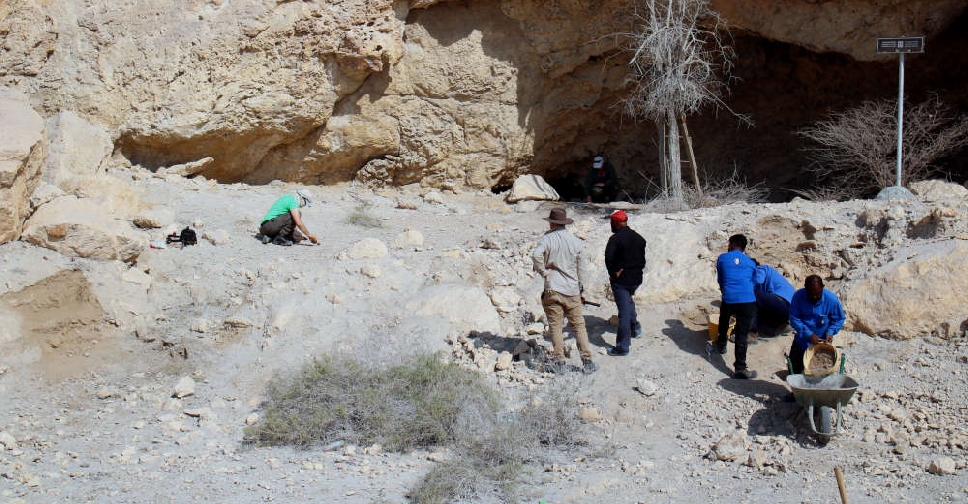
International researchers have uncovered evidence of early prehistoric settlement in Fujairah. The findings suggest mobile groups occupied the rock shelter site of Jabal Kaf Addor in the al-Habhab region between 7,500 and 13,000 years ago.
Before the discovery, it was believed that Southeast Arabia was uninhabited from about 38,000 years ago, when dry conditions developed, until the onset of more moist conditions around 7,000 years ago. These new results extend the known history of settlements in the emirate, fill gaps in the archaeological record, and challenge long-held assumptions about the timing of human settlement in the region.
The research team is made up of experts from the Department of Tourism and Antiquities, Fujairah, the University of Jena, Germany, and Oxford Brookes University, United Kingdom.
Saeed Al Samahi, Director of the Fujairah Tourism & Antiquities Authority, said that thanks to the directives of the Fujairah government, the department is dedicating its efforts to developing the antiquities and heritage sector and conducting archaeological surveys based on scientific knowledge and international standards in cooperation with international missions specialised in this field.
“Previous archaeological discoveries in the region have indicated the existence of human settlements and unearthed tools dating back to the prehistoric period." He said
"In the study and research of Jabal Kaf Addor in the Habhab region, the department provided all logistical and scientific support to the specialised archaeological mission. The archaeological findings shed light on the history of the emirate, which dates back to the prehistoric and post-historic eras, and the chronology of human settlements that continue to this day.”
Ali Qasim, Director of Fujairah Natural Resources Corporation, said: “We are very proud of such a significant archaeological discovery that rewrites the history of human settlement in Fujairah. Our cooperation with international experts and prestigious research institutions has yielded unprecedented results, shedding light on the richness of the emirate's geological and archaeological heritage.”
Dr. Knut Bretzke, the archaeologist who supervised the excavations at the site from the University of Jena, Germany, said, “The recent archaeological discoveries at the Jabal Kaf Addor rock shelter site mark a significant milestone in our understanding of human history in Fujairah.”
Dr. Bretzke further noted that the evidence uncovered by our collaborative international team pushes the timeline of human occupation in the region back to about 13,000 years ago, challenging long-held beliefs about the habitation patterns in Southeast Arabia.

 UAE shines in global competitiveness rankings for 2025
UAE shines in global competitiveness rankings for 2025
 UAE President marks Senegal independence day
UAE President marks Senegal independence day
 UAE expands cancer prevention plan
UAE expands cancer prevention plan
 UAE says companies under US sanctions not operating in country
UAE says companies under US sanctions not operating in country
